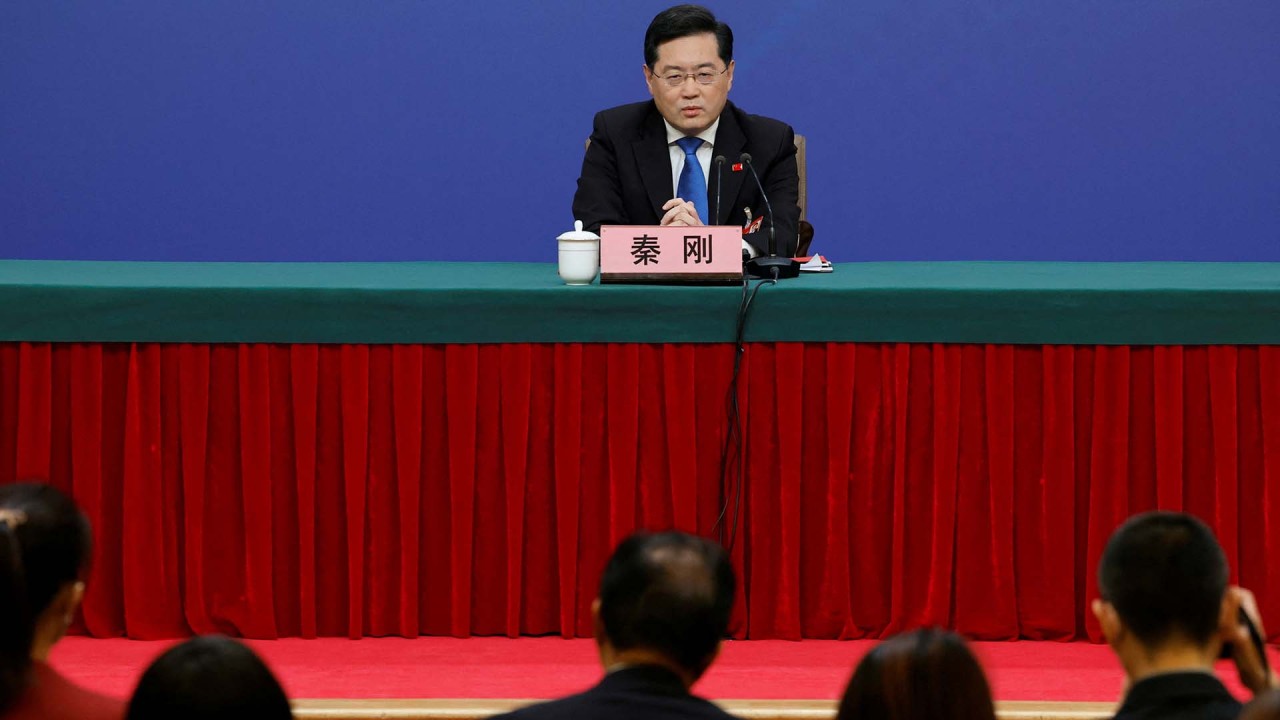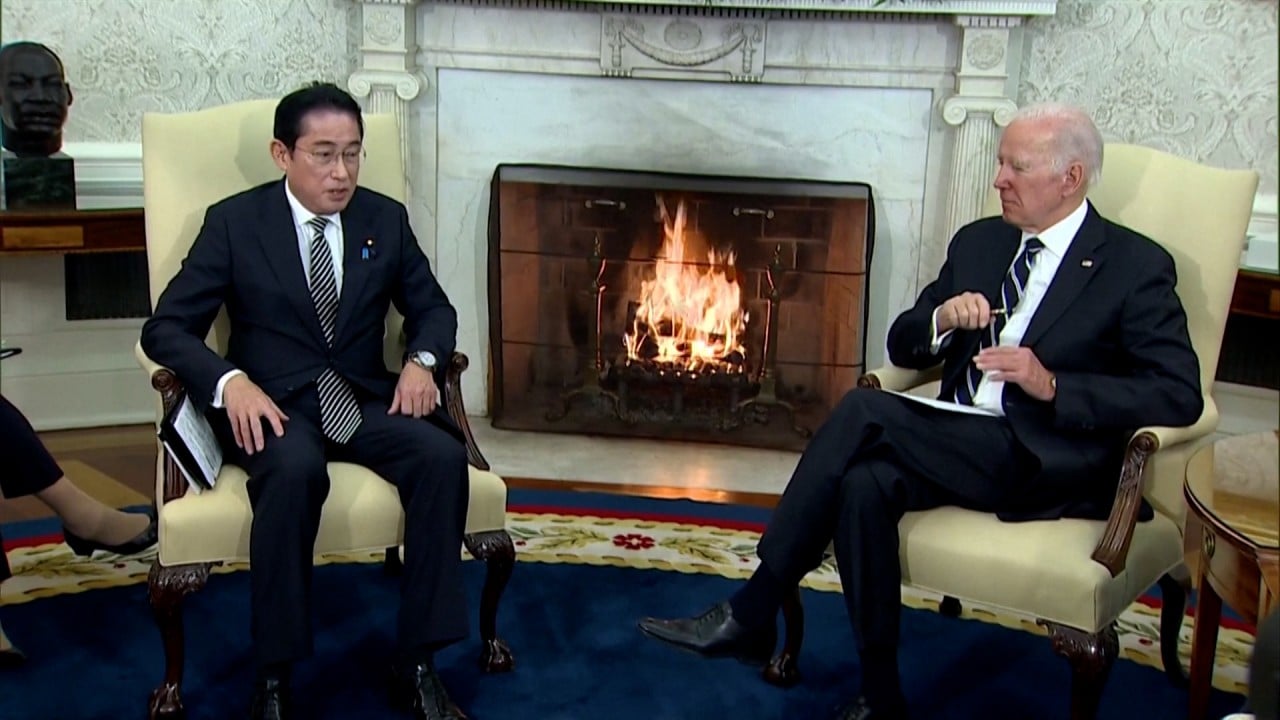
China berates Japan over massive military expansion plans
- Chinese foreign minister invokes wartime past in warning to Japan to not upset the international order
- Unusually harsh scolding reflects Beijing’s frustration at Tokyo’s willingness to side with the US, analyst says
China’s new foreign minister, Qin Gang, lashed out at Japan on Tuesday over its biggest military build-up since World War II, accusing Tokyo of helping Washington in its new cold war against Beijing.
“Japanese militarism has inflicted deep damage on the Chinese nation, which is still painful to this day. The Chinese people will not forget, and neither should the Japanese side,” he said. “Forgetting history means betrayal, and denying guilt means repeating the crime.”
Brushing off growing concerns in Tokyo and many Western capitals about China’s military and diplomatic assertiveness, Qin insisted China always treated Japan with kindness and hoped to share good neighbourliness and friendship.
“However, if some people on the Japanese side do not treat their neighbours as partners ... or even participate in a new cold war to contain China, then the old wounds between the two countries will not heal and new pain will occur,” he warned.
But Japan’s dramatic shift in its defence strategy in December scuppered those hopes, with Kishida pledging to nearly double Tokyo’s defence budget in the next five years and labelling Beijing as an “unprecedented strategic challenge”.
China was further infuriated when Japan decided to deepen its alignment with the US and other Western powers in their “stronger than ever” security alliance, especially on Taiwan – a “red line” for Beijing.
While Beijing has often invoked Japan’s wartime past to rein in Tokyo’s geopolitical ambitions, China appears particularly unhappy that Japan has used threats from China to justify its plans for rearmament and global power status.
Harking back to Japan’s wartime atrocities and its World War II defeat, Qin said the post-war international order must be maintained.
“All historical revisionism that challenges the post-war international order and international justice will never be accepted by the Chinese people,” he said.
“The spirit of the Treaty of Peace and Friendship between China and Japan [signed 45 years ago], in which opposition to hegemonism is clearly stipulated, is of relevance at the present time,” he said.
Despite the widening gulf on security and geopolitical issues, Qin called on Tokyo to work with Beijing to avoid a possible collision between the Asian powers.
“China and Japan have complementary advantages and need each other,” he said at the televised annual press event.
“We should adhere to market principles and the spirit of freedom and openness, strengthen cooperation, jointly maintain the stability and smoothness of the industrial chain and supply chain, and inject momentum and vitality into the recovery of the global economy.”
In another jab at Tokyo, the Chinese diplomat also raised Japan’s plan to discharge wastewater from the Fukushima nuclear plant into the sea.
“This is not a private matter for the Japanese, but a major event related to the marine environment and human health. We urge the Japanese side to handle this issue in a responsible manner.”
But Qin dodged a question about whether Beijing and Tokyo had plans to rearrange a visit to China for Japanese Foreign Minister Yoshimasa Hayashi, a trip originally planned for December but postponed indefinitely due to bilateral tensions.
In a blunt message to Tokyo, Kong Xuanyou, who stepped down as China’s ambassador to Japan last month, urged his host country to distance itself from Washington in the US-China rivalry in a bid to maintain what Beijing described as “strategic autonomy”.
“We have no intention to accuse other countries of interfering in the development of alliance relations, but the key is that the relevant arrangements should not target third parties and should not undermine regional peace and stability,” Kong said in his farewell interview with Japanese news agency Kyodo last month.
“I hope that Japan will understand the general situation, follow the trend, pursue a positive, rational and balanced foreign policy, and make a strategic choice that is truly in its own and regional interests.”
Lian Degui, director of the Centre for Japanese studies at Shanghai International Studies University, said China was disappointed at Japan’s willingness to follow in the US’ footsteps to confront China on Taiwan, human rights, Xinjiang, Hong Kong and chips.
“From China’s perspective, the US has become the key obstacle to the improvement of Sino-Japanese relations, due to the fact that the US remains Japan’s foreign policy priority,” Lian said.
He said Qin’s remarks should serve as a reminder for leaders in Japan.
“For Beijing, Tokyo is in no position to point the finger at China given its wartime aggression. And its decision to follow the US will harm ties with China,” Lian said.



